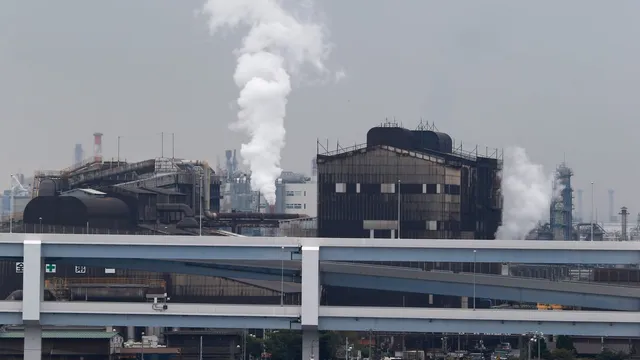
Japan and South Korea face severe oil vulnerability amid Middle East tensions
2025-06-27 04:19- Japan and South Korea are the most vulnerable Asian countries regarding oil and gas imports from the Middle East.
- Approximately 75% of Japan's oil imports and over 70% of South Korea's oil imports traverse the Strait of Hormuz.
- A shift towards renewable energy is crucial for these countries to enhance their energy security amidst geopolitical tensions.
Express your sentiment!
Insights
In recent months, the ongoing tensions between Israel and Iran have underscored Asia's significant reliance on oil and gas imports from the Middle East, revealing vulnerabilities for several countries in the region. Japan and South Korea are identified as the most exposed, with Japan depending on imported fossil fuels for 87% of its total energy and South Korea for 81%. The oil and liquefied natural gas that they import predominantly transit through the strategically crucial Strait of Hormuz, which accounts for three-quarters of Japan's oil imports and over 70% for South Korea. In contrast, countries like China and India have made strides in diversifying their energy sources and investing in renewable energy, albeit with varying degrees of success. China has particularly adopted measures to reduce its liquefied natural gas imports by boosting domestic clean energy production and diversifying its supply chain. Despite these efforts, China remains the world's largest oil importer, continuing to rely heavily on Middle Eastern oil, which constitutes nearly half of its imports. The looming risks of potential disruptions in energy supply, be it through blockades or price volatility, extend beyond these countries, potentially impacting others in Asia. Analysts have stressed the importance of developing renewable energy capacity as a proactive strategy for energy security. Southeast Asia, which has become a net oil importer, further faces challenges as demand continues to rise while renewable energy uptake fails to keep pace. Consequently, both Japan and South Korea must implement significant increases in solar and wind energy installations to meet their 2050 net-zero carbon emission targets. The need for regulatory reforms to support offshore wind projects and overcome existing barriers is imperative if these countries are to achieve energy security and remain resilient against the volatility of global energy markets.
Contexts
The ongoing conflict between Israel and Iran has significant implications for global oil supply, primarily due to both countries' pivotal roles in the Middle East's oil landscape. As one of the largest oil producers in the world, Iran's oil supply is critical not only for its economy but also for global markets. Conversely, Israel, though not an oil producer on the scale of Iran, is a key ally to Western nations and plays a strategic role in the region. With escalating tensions and military engagements, disruptions in oil production and transportation routes could emerge, leading to fluctuations in global oil prices, which could affect economies worldwide. A scenario where Iran engages in hostilities could result in direct impact on its oil exports, and more broadly, on the Strait of Hormuz, through which approximately 20% of the world's oil passes. Any military actions in this region could inhibit or halt the flow of oil, leading to immediate spikes in prices and creating panic in the global markets. An interruption in supply from Iran—or retaliation from its proxies—could also lead to increased tension with other oil-producing nations, potentially causing them to adjust their output in response to rising prices or geopolitical pressures. In the event of all-out conflict, countries that rely heavily on Iranian oil, particularly in Asia, would face substantial economic strain, leading to discussions around alternative oil supplies and potential shifts in energy policy. For instance, nations such as China and India may seek to establish new agreements with other producers, or turn to strategic reserves to mitigate the fallout. Furthermore, advanced economies, already embracing renewable and alternative energy sources, could accelerate their transition plans, thereby altering long-term oil demand dynamics. In conclusion, the Israel-Iran conflict poses a multi-faceted risk to global oil supply. Stakeholders,, from governments to global corporations, must closely monitor developments in this region to anticipate and respond to potential disruptions. Understanding these dynamics is vital for crafting effective energy policies and maintaining stability in global markets. The interconnected nature of today's oil markets means that a localized military conflict can quickly escalate into a broader economic crisis, necessitating vigilance and strategic foresight in addressing potential risks.